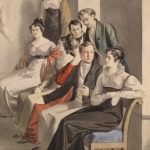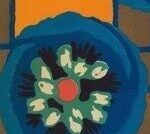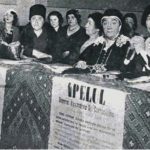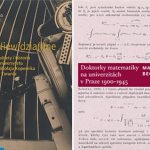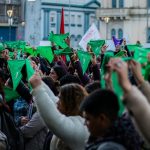 Panel at the IUAES Congress; Moira Perez, University of Buenos Aires (Web)
Panel at the IUAES Congress; Moira Perez, University of Buenos Aires (Web)
Time: 25.-31.05.2022
Venue: St. Petersburg, Russia
Proposals by: 15.02.2022
This panel explores various contemporary strategies of resistance against marginalisation, social classification and oppression in the context of “movements” broadly conceived: social movements and initiatives for social transformation, but also forced displacement and forced enclosure. In recent years, scholarship (most notably queer, feminist and anti-colonial) has drawn attention to various ways in which refusal and radical imagination can constitute means of resistance. Sara Ahmed has stressed the idea of refusal as central to feminist transformation -refusing to comply with a given role, to endorse oppressive practices, to move over or keep silent-, while prison abolitionism, indigenous and environmental perspectives have called for expanding radical imagination, as a means to make a different world possible.
The organizers invite scholars, both from anthropology and the social sciences and the humanities, to follow this path by sharing their empirical and/or theoretical research on the functioning of these contemporary strategies in different parts of the world, the concrete form they take, their dynamics and underlying assumptions, or strengths and weaknesses. What strategies of refusal, resistance and imagination are currently being explored in radical social movements, and what challenges do they encounter? How does refusal interrupt political imaginaries and practices? How do the movements’ radical imaginaries move us and the world around us? What are the contextual determinants that might lead some refusals to carry potential for transformation, whilst others result in dead ends? What happens when radical social movements apply these strategies to their own practice? And when they fail to do so? How do those resistances (refusals, imaginations) look like in the case of reactionary counter-movements? The notion of “movement” the organizers propose includes but is not limited to human displacement.
Papers focusing on the theme of the Congress can reflect on how people resist —by enduring or opposing— forced migratory movement as well as immobility, as is the case with imprisonment or closed borders; or on how motion or refusal to Continue reading


